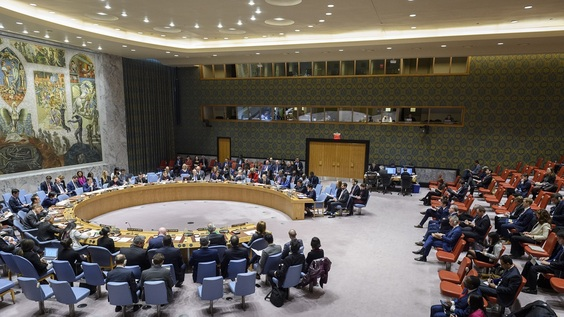The United Nations Security Council (UNSC) held a meeting addressing Iran’s recent missile and drone attack on Israel which began at 16:00 EST on Sunday.
The Meeting:
The meeting was characterized by many of the nations present calling for an end of hostilities between Israel and Iran alongside other groups active in the ongoing struggle in order to preserve the security and stability of the Middle East and prevent the conflict from spilling over to other nations.
The nations of the United Kingdom, France, the United States, Malta, Switzerland, and several others condemned Iran’s attack on Israel, with Switzerland and Malta further condemning the attack on the Iranian embassy in Damascus by Israeli forces.
The majority of the nation’s present further expressed the need for a ceasefire in the region alongside the release of hostages held by Hamas and the introduction of humanitarian aid in Gaza.
Israel:
The Israeli delegation claimed that Iran launched 170 UAVs, 120 ballistic missiles, and 30 cruise missiles from locations in Iran, Syria, Lebanon, and Iraq which carried an estimated 60 tons of explosives. Many of these attacks were intercepted by Israel’s allies including France and the United States while US officials stated earlier today that an estimated 50% of missiles launched failed to reach their intended destinations in Israel either through failed launches or crashes prior to reaching their targets.
The Israeli delegation further claimed that Iran does not care about Islam, showcasing footage of missiles intercepted over Al-Aqsa Mosque which the delegation implied was a target of such attacks. The delegation further pointed to the injury of a seven year old girl during the attacks, claiming that Iran did not take measures to ensure the safety of civilians.
Footage of munitions travelling above the Al-Aqsa mosque during Iran’s attack on Israel. pic.twitter.com/RyCesFrKNn
— GHMV2 (@GHMV2Research) April 15, 2024
The delegation then drew connections between Iran’s Supreme Leader, Ayatollah Ali Khamenei, to Adolf Hitler, claiming that the Iranian leader wishes to employ a “global Shiite hegemony” with the goal of “world domination by exporting its (Iran’s) radical Shiite revolution across the globe.”
“The Islamic regime of today is no different than the Third Reich … and Ayatollah Ali Khamenei is no different than Hitler.”
The delegation claims that Ayatollah Ali Khamenei seeks “his radical Shiite hegemony to spread across the region beyond,” much like Adolf Hitler’s Third Reich.
The delegation then evidenced Argentina’s recent ruling of Iran as a terrorist state following the court’s conclusion that the Iranian government masterminded the 1994 bombing of a Jewish Community center in Buenos Aires which killed 85 people and wounded 300 more claiming that the Iranian state is a terrorist state.
They mentioned Iran’s potential nuclear capabilities, with the delegation head stating that “Iran is barreling towards nuclear capability,” following the delegation asking the council to imagine if the attacks were conducted under an Iranian “nuclear umbrella.”
The delegation ended their speaking portion with claims that Iran is the world’s worst human rights violator, requesting the UN to remove the Islamic nation from any official UN position and to designate the Islamic Revolutionary Guard Corps (IRGC) as a terrorist organization.
Iran and Syria:
The Iranian delegation claimed that the attack was in line with the UN’s charter on national self defense, claiming that the action was necessary in order to address the Israeli bombing of the Iranian embassy complex in Damascus with the strikes only targeting military targets, and that it was a legitimate exercise of their right to self defence.
The delegation further claims that the United Kingdoms and France have turned a blind eye to Israeli attacks in Syria before further claiming that the United States has protected Israel from consequences in the UNSC.
Notedly, Iran also rejected the claim that they hold “proxies” in the region. While they did not name any specific groups, the Iranian Ambassador to the UN, Amir Saeid Iravani, claimed that the groups accused of being Iranian proxies were “legitimate” and “fighting against the occupation and aggression of Israel.”
“Contrary to unfounded claims, Iran has no proxy in the region. No individual group or country acts at Iran’s behest. The US and Israeli regime attempt to label the resistance groups in the region as proxies or terrorists. Their sinister aim is only to justify and legalize their malicious and destabilizing activities in the region. The resistance groups are not proxies or terrorists, they are legitimate and are only fighting against the occupation and aggression of Israel in Gaza and occupied Palestinian territories, and of the US in the region. International law recognizes such legitimate rights against any occupation and aggression” – Iranian ambassador to the UN, Amir Saeid Iravani
The west oftentimes labels groups such as Hezbollah or Hamas as “Iranian proxies,” claiming that they at times take orders from Iran.
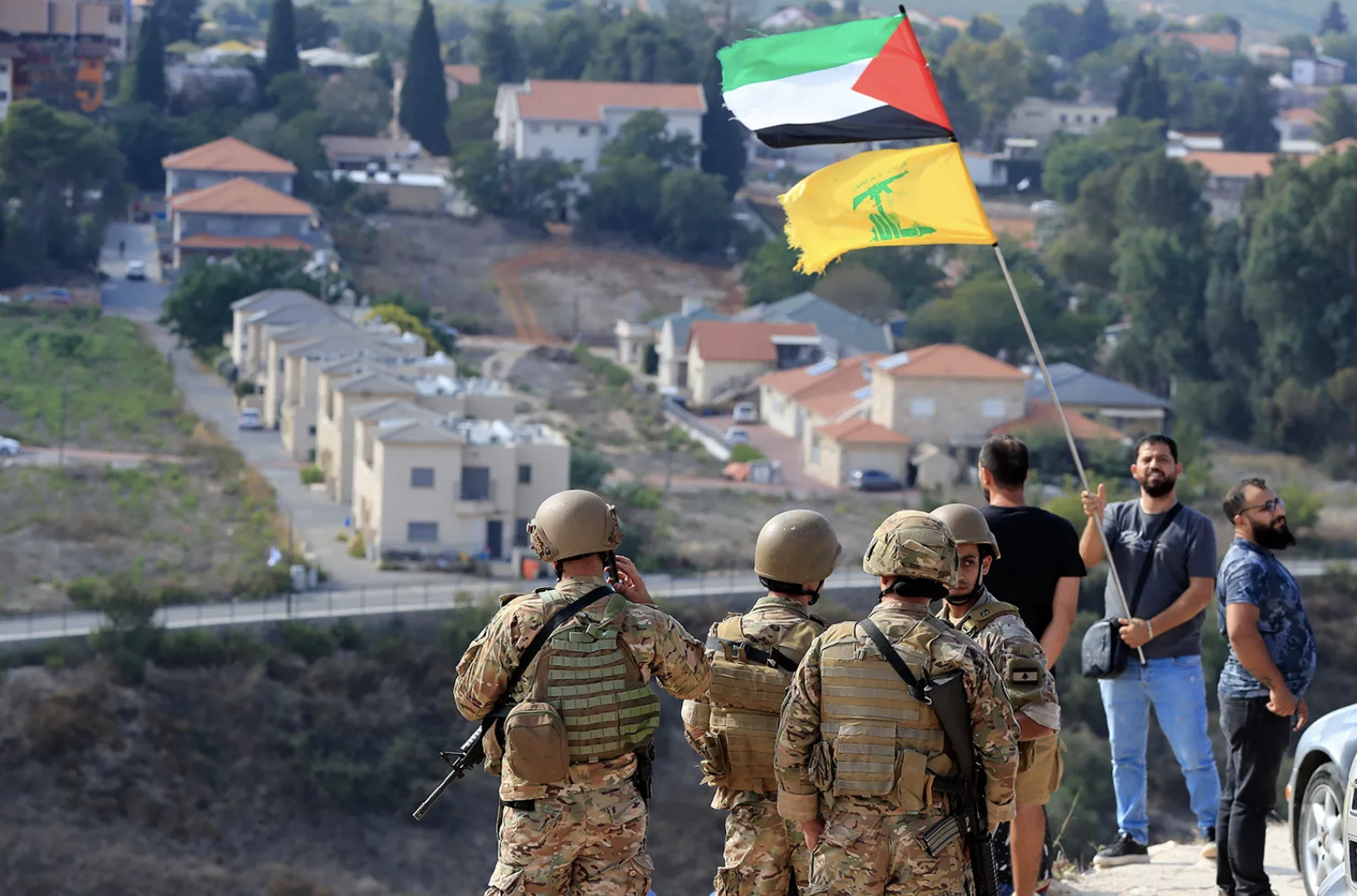
The Syrian delegation opened by claiming the protection offered to Israel by the United States has led the Middle Eastern nation to believe themselves as above international law and the United Nations.
The delegation then claimed that the US alongside its allies has prevented measures enacted by the UNSC to hold Israel accountable for the nation’s perceived crimes.
The delegation continued, calling for Israeli authorities to withdraw from occupied Arab territories before demanding the complete withdrawal of US forces in Syria and for the cessation of funding to militias in Syria.
The delegation concluded with the condemnation of western strikes launched by the United States, United Kingdoms, and France on Syrian territory before ending by calling the attack launched by Iran a legitimate form of self defense.
The United States:
The United States delegation began with claims that Iran’s intent was to cause “significant damage and death in Israel.” The delegation further claimed that Iran’s attack endangered other UN member states, specifically noting Jordan and Iraq.
“The Security Council has an obligation to not let Iran’s actions go unanswered,” the head of the delegation stated.
The delegation then claimed that Iran has violated international law through actions by the IRGC and by funding and arming various Islamic extremist groups including Hezbollah, Hamas, and the Houthis. The delegation continued, stating that by funding the Houthi movement which has previously launched attacks against ships in the Red Sea and by the government’s seizure of mercantile vessels in international waters that it has violated further international laws. The delegation ended this segment by mentioning the sale of Shahed-136 drones to Russia which have been used during the ongoing Russo-Ukrainian conflict.
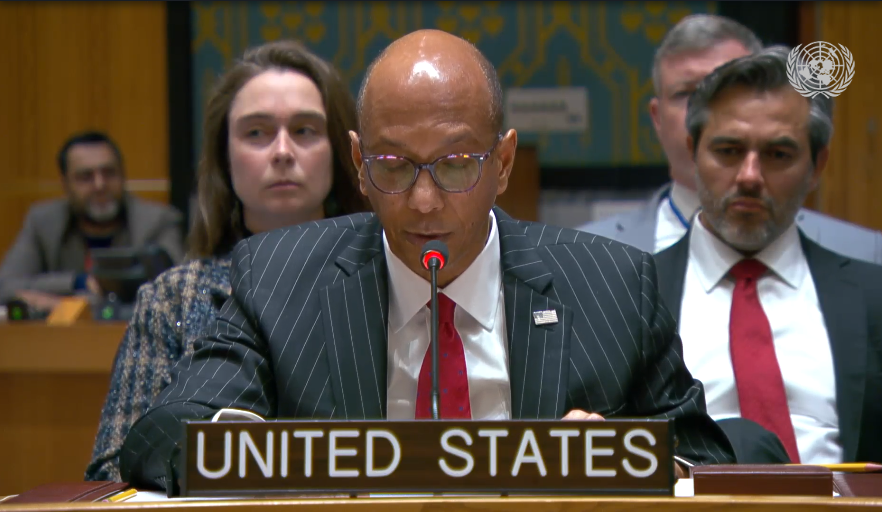
The US delegation called on all members of the Security Council to condemn the attack by Iran and for Iran and its proxies to refrain from violence.
The US concluded their speaking portion by claiming that the nation seeks to de-escalate the conflict before returning to the “issue at hand,” bringing a ceasefire to Gaza through a hostage deal between Hamas and Israel and increasing humanitarian assistance to those in Gaza.
France and the UK:
The French delegation began their speaking portion by condemning the Iranian attack against Israel, claiming that by launching this attack Iran has “crossed a new threshold amidst destabilizing action,” and “is risking a military escalation in which it would responsible,” before calling on Iran to cease all activities that may destabilize the region.
The delegation further expressed their satisfaction that Israel was able to repel the Iranian attack, before stating that by repelling the attack Israel saved “many civilians.” The delegation then stated that the French government has sought an “immediate and lasting ceasefire” between Israel and Hamas in negotiating within Lebanon.
The United Kingdom delegation began their speaking portion by condemning the attack on Israel before stating that the government has “long been clear that Iran plays an unacceptable role in destabilizing the region,” before stating that “it (Iran) also bears responsibility for the groups it has supported.”
The delegation then called upon Iran to release the MSC Aries alongside the vessel’s crew “unconditionally and without delay,” a demand other members of the council supported.
Russia:
Russia began their speaking portion by noting the United Nation’s Secretary General’s immediate public condemnation of Iran’s attack yet his absence of a condemnation regarding the attack on the Iranian embassy in Damascus on April 1st.
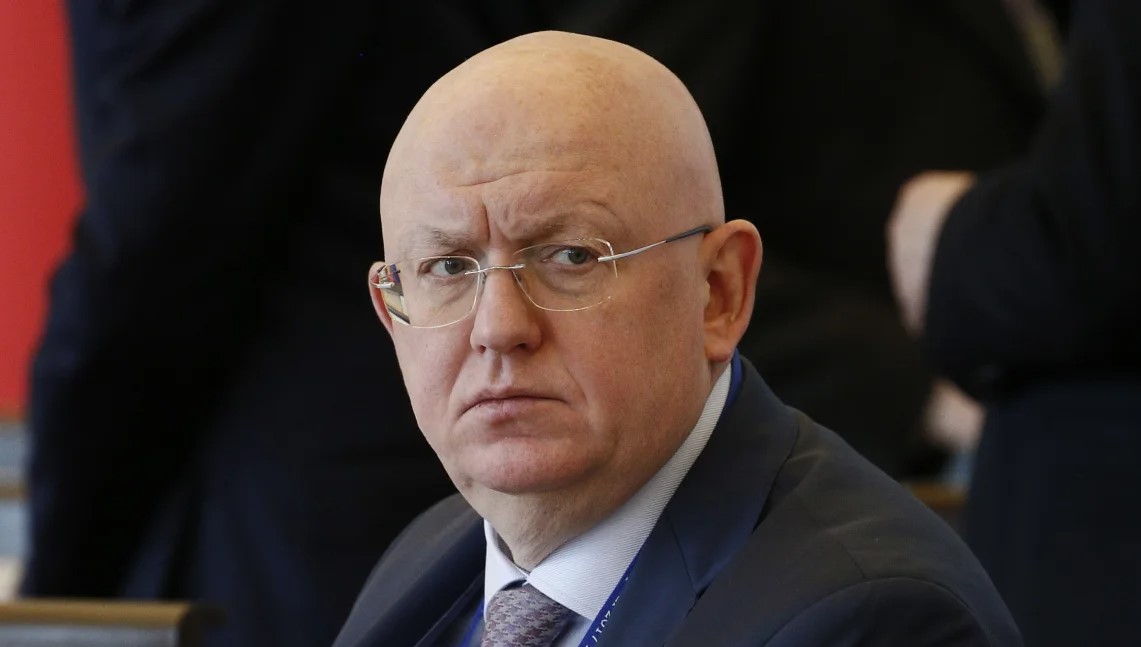
Russia’s statement was particularly critical of the west, as well as their influences on the UNSC. After Russian UN Ambassador Vasily Nebenzya began his statement, he noted that Russia had proposed a joint press release on April 2nd in order for the UNSC to uniformly condemn Israel’s attack on the Iranian embassy on Damascus. However, he claimed that the “western delegations” barred the process by saying that the circumstances were unclear, and that they did not have “enough information.”
Ambassador Nebenzya continued speaking on the embassy attack, claiming that any sort of attack on an embassy, regardless of where in the world and on which nation, is unacceptable. He further referred to the Israeli attack as an act of war, and pointed out what he said was the hypocrisy of the western delegations, claiming if it was a western embassy that had been attacked that it would have seen a swift and unified condemnation and an immediate response.
“Today the Security Council we’re witnessing is a display of hypocrisy and double standards” – Russia’s Ambassador to the UN, Vasily Nebenzya
Russia’s statement also attempted to put Iran’s attack into the wider context of what is happening in the region, claiming that it did not happen “in a vacuum,” but in the wider context of the ongoing Israel-Gaza war, which the ambassador referred to as “unprecedented.” Additionally, he stated that Iran’s attack took place after the “disgraceful inaction” of the UNSC.
Concerning the wider context of the war, Ambassador Nebenzya also accused Israel of non-compliance with the UNSC’s recent resolution that had called for an immediate ceasefire in Gaza. While he did not explicitly say Israel should suffer sanctions over the matter, he did state that non-compliance with resolutions of the UNSC is “not something that one should get away with,” and that “it’s wrought with sanctions against the violator.”
Concluding his statement, the ambassador called for “all parties” involved to exercise restraint, and that Russia expects both sides to solve their respective issues through political and diplomatic means only, not through further violence. He noted Iran’s stated commitment to not further escalating the situation, and urged Israel to “follow suit.”
There are two particularly notable parts about Russia’s statement to the UNSC. Namely, their statement included no condemnation of Iran’s attack upon Israel, and that the ambassador twice referred to Israel as “West Jerusalem,” referencing Israel’s borders of the 1949 Armistice Agreement, and not their current claimed borders.
Algeria:
The Algerian delegation began their speaking segment by calling upon all those involved in the conflict to “practice self-restraint and avoid escalation” to prevent the conflict from spilling over into other nations within the Middle East. The delegation further stated that Algeria has warned the Security Council regarding the attack on Iran’s embassy in Damascus before condemning the “arrogance and behavior of the Israeli Occupation in the region,” notably referring to the Israeli Defense Forces (IDF) as the “Israeli Occupation Forces,” a key difference that many pro-Palestinian and Hamas officials use to refer to the IDF.
The delegation continued, claiming that all the crises in the Middle East are “interrelated” before calling for the “root causes” to be addressed, which the delegation claims to be the “Israeli Occupation.” The delegation then stressed that the recent conflict between Iran and Israel cannot overshadow the “central question” of the aggression, the attacks on the “unarmed Palestinian people in Gaza.” The delegation then called to prevent any operations targeting Rafah and the reaching of an immediate ceasefire.
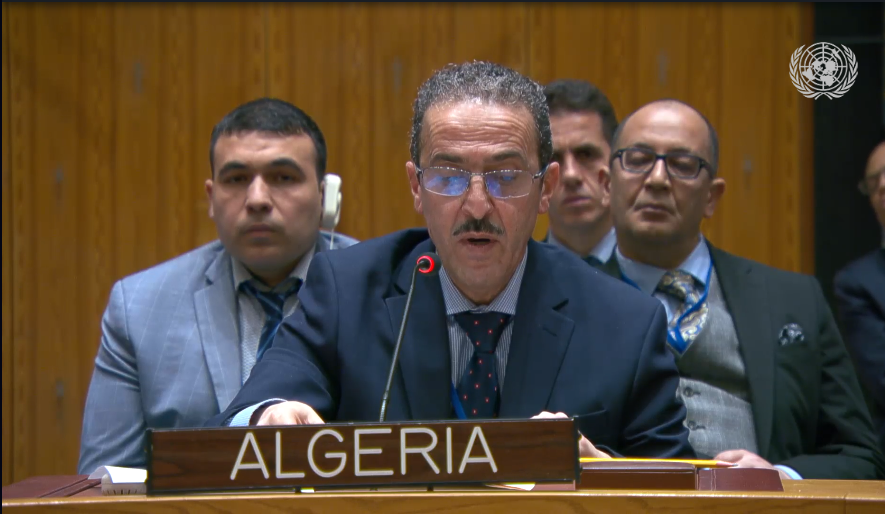
Rafah was previously established by Israel to be one of the safe areas within Gaza to which civilians evacuating from the north could go. As such, it has become host to approximately 1.4 million people, more than half of Gaza’s 2.3 million population. Rafah sits on the Egyptian border, and has also been the primary entry point for aid entering Gaza.
Many fear that an Israeli operation in Rafah would be immensely costly in civilian lives due to the large amount of civilians residing there. On top of this, it would pose significant challenges to humanitarian operations in Gaza due to the importance that Rafah plays in humanitarian operations. UN Secretary General Antonio Guterres has said that an operation in Rafah would be the “nail in the coffin” for humanitarian operations that already face extensive challenges within Gaza.
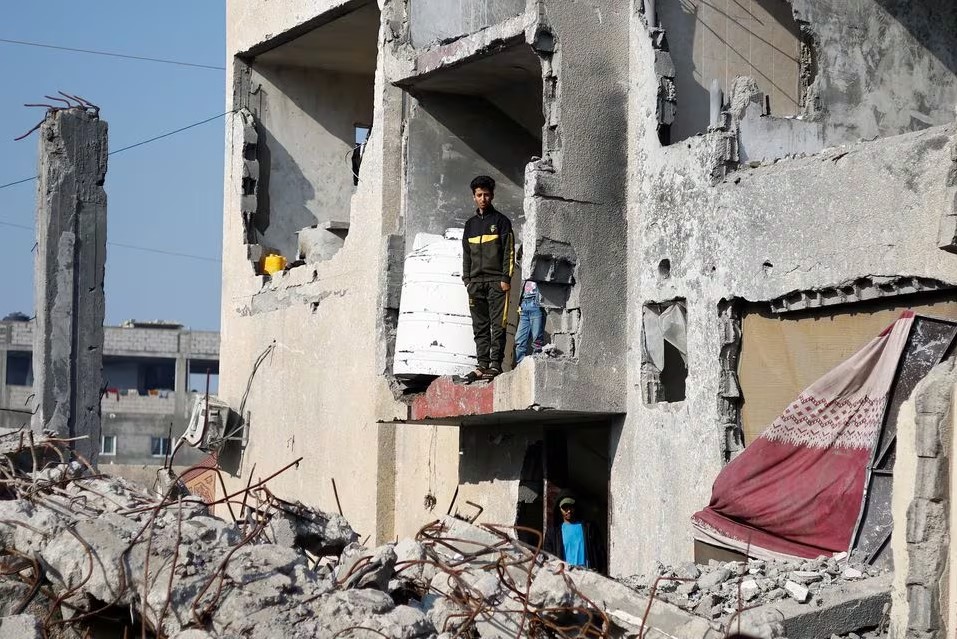
Netanyahu has been insistent, however, that an operation in Rafah is necessary to completely defeat Hamas. Israel claims that Rafah is host to an extensive tunnel network, host to large amounts of Hamas militants as well as the remainder of the Israeli hostages still held by Hamas, of which there are approximately 130. Around 30 of the hostages still held by Hamas are believed to have died while being held within Gaza.
The US and Israel have continually clashed over the issue, with the US having on multiple occasions publicly declared their opposition to such an operation. In a recent visit to Israel, US Secretary of State Antony Blinken warned that the operation posed too great a risk to civilians, and risked isolating Israel completely on the world stage, more so than they have been already.
The delegation ended with a call to bring an end to all “Israeli occupation” across “all Arab territories” and establish an independent Palestinian state with “Jerusalem as its capital.”
The Attack:
On Saturday, April 13th, the Iranian government launched a large-scale missile and drone attack on Israel in response to the killings of a number of high-ranking members of the Islamic Revolutionary Guard Corps (IRGC) who were killed during an airstrike on an Iranian consular annex in Syria’s capital on April 1st.
Following the April 1st attack, Iran’s Supreme Leader, Ayatollah Ali Khamenei, vowed retaliation against Israel, leading to weeks of tensions between the two Middle Eastern countries and prompting a response from Israeli Prime Minister Benjamin Netanyahu.

“Whoever harms us, we will harm them,” the Prime Minister said on the 11th. “We are prepared to meet all of the security needs of the state of Israel, both defensively and offensively.”
This vow would be upheld on Saturday, when hundreds of Shahed-136 drones were launched from eastern Iran to Israel in the Islamic nation’s first ever direct attack on Israel. These drones would reportedly be launched around 15:30 local time, as reported by Barak Ravid for Axios.
The drones were joined by about 200 missiles launched in a second attack on Israel, many of which were shot down by the United States military alongside the British. Despite these missiles having been shot down, falling debris damaged buildings in the Jerusalem area and Negev region, including the Nevatim Airbase, where only minor damage was reported by Israeli officials.
A number of casualties were reported following the attack, while no fatalities have yet been announced by authorities.
Following the conclusion of the attack, Israeli authorities announced that the nation would take “unprecedented retaliation” measures against Iran, while any official plans against the Islamic nation have yet to be announced.


